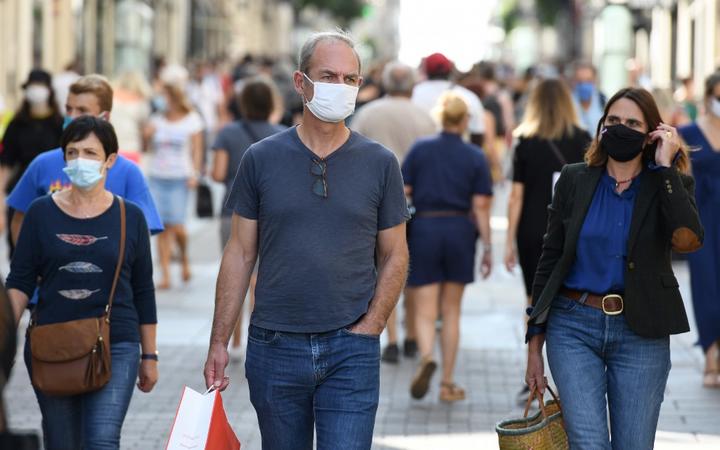Global Covid-19 death toll passes one million
The number of people worldwide who have died from Covid-19 has passed one million, researchers say, with many regions still reporting surging numbers of new infections.

People wearing face masks, to curb the spread of Covid-19 in Nantes, western France. Photo: AFP
According to a tally by Johns Hopkins University the death toll now stands at 1,000,555.
The US, Brazil and India make up nearly half of that total.
Experts caution that because of differences in recording deaths the true figure is probably much higher.
The grim milestone comes nearly 10 months after news of the new coronavirus began to emerge in the Chinese city of Wuhan.
The pandemic has since spread to 188 countries with more than 32 million confirmed cases. Lockdowns and other measures to try to stop virus spreading have thrown many economies into recession.
Meanwhile, efforts to develop an effective vaccine are continuing – although the World Health Organization (WHO) has warned that the death toll could hit two million before one is widely available.
The US has the world’s highest death toll with about 205,000 fatalities followed by Brazil on 141,700 and India with 95,500 deaths.
The US has recorded more than seven million cases – more than a fifth of the world’s total. After a second wave of cases in July, numbers dropped in August but appear to be on the rise again now.
The coronavirus has been spreading fast in India, with the country recording about 90,000 cases a day earlier in September.
Confirmed infections in India have reached six million – the second-highest after the US. However, given the size of its population India has seen a relatively low death rate.
Brazil has the highest number of deaths in Latin America and has recorded more than 4.7 million cases, the third highest in the world.
Elsewhere in the region, newly confirmed infections are also rising quickly in Argentina, which now has more than 700,000 cases.
– BBC
